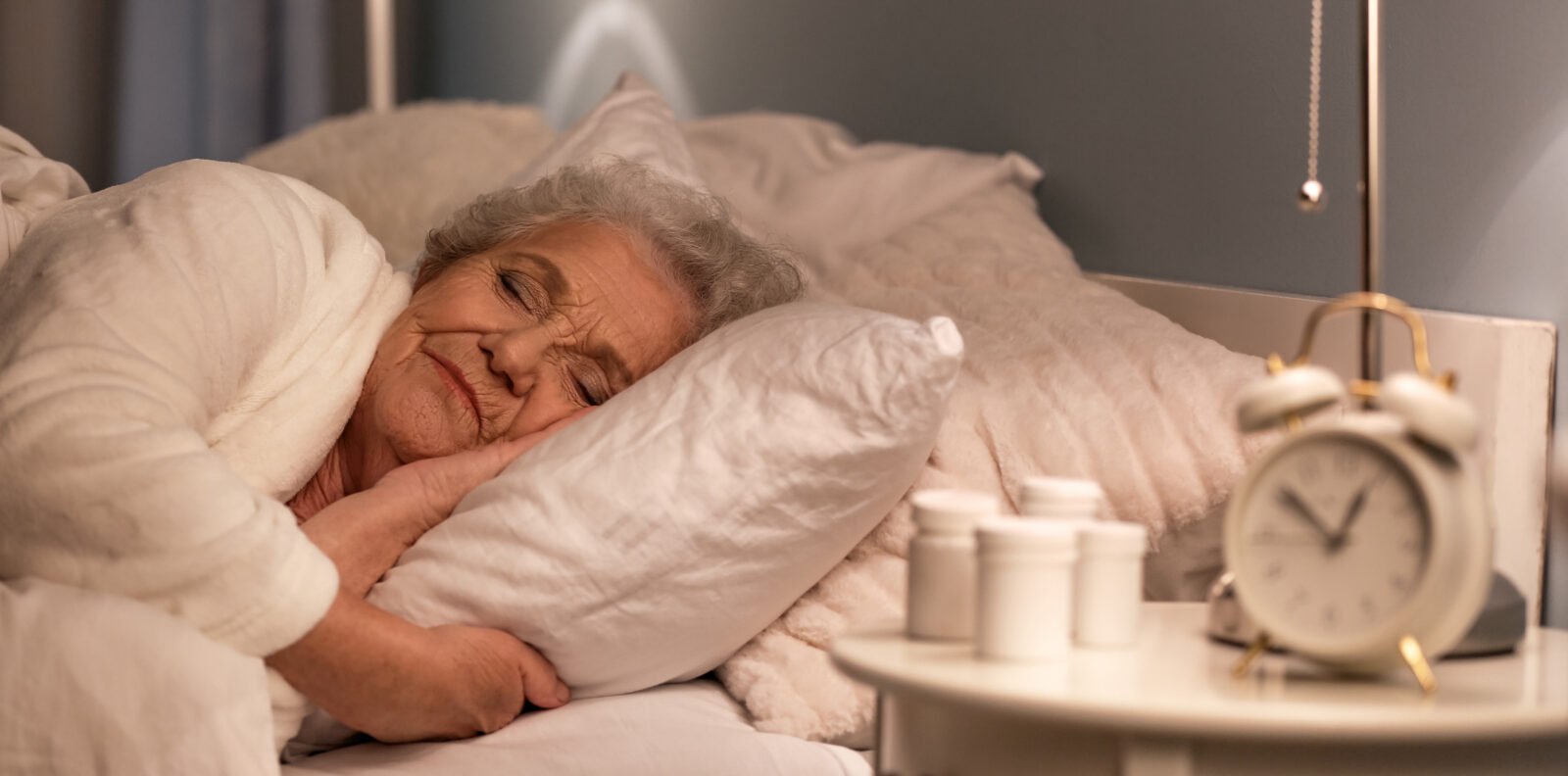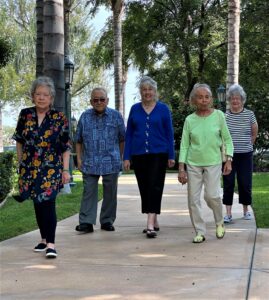Hollenbeck Palms
New research examines the connection between sleep medications and dementia symptoms

The morning after a good night’s rest is an unbeatable feeling. On those magical days, your body awakens rejuvenated from a full night’s sleep, which physicians say is at least seven hours per night for individuals up to the age of 60. While everyone’s experience following the recommended amount of sleep will vary, sleeping well is closely linked to overall physical and mental health.
Improving sleep patterns can be as easy as making minor changes to daily habits, such as adjustments to the time you eat dinner and the time you dim the lights for bedtime.
Melatonin supplements, when used over a short window of time, can work as a sleep aid, and are deemed safe by physicians. However, it is not a solution for everyone. Achieving a morning recharge from a complete night’s rest with ongoing pharmacological aid or intervention may be problematic for one’s health. Research is looking into medication designed to aid sleep as a possible risk factor for forms of cognitive decline. Researchers found that regular use of these medications may increase the risk of developing dementia symptoms.
A large body of research paints the picture that lack of sleep during middle age is a risk factor for dementia later in life. While many studies are preliminary and do not draw a direct line between poor sleep and dementia symptoms, good sleep is undeniably beneficial.
There is a long-held consensus based on scientific and personal research that sleeping well is good for the body and mind in countless ways. The following tips are natural remedies to insomnia, meaning you may not have to use medications and deal with their side effects.
Light Therapy
The light of day is the body’s cue to wake up. Light can also be used to regulate the body’s circadian rhythms. Because light exposure prompts the body’s sleep cycle, it is important for one to soak in as much light energy first thing in the morning. A brisk, early morning walk can be the answer.
It is also possible your body yearns for daylight later in the day. This is especially prevalent in individuals who tend to wake up too early or go to bed unusually early. A late afternoon or early evening walk when the sun is still out can close the gap between the body’s needed light intake.
Many residents at Hollenbeck Palms love taking a stroll through our 8.5-acre garden campus to gain some light therapy and there is even a Walking Club.

Yoga
Downward dog, mountain pose, warrior and the seat-forward fold are just a few yoga poses, in addition to traditional stretching exercises that aim to engage the physical, mental, emotional, and spiritual aspects of the body. Yoga promotes flexibility, muscle strength, balance, and mobility. It is also known to help improve sleep. Studies indicate that mindfulness, which is a yoga requirement, and the system of breathing, stretching, relaxing and focusing, may relieve insomnia symptoms. The same can be said about Tai Chi, a slow-moving exercise and art form.
Healthy Eating
Several healthy lifestyle strategies can lead to more restful nights. Cutting back on alcohol, nicotine and caffeine consumption, for example, allows the body to recover from substances known to have a negative impact on sleep quality. That soda during lunchtime or the tea you had for dinner can contain enough caffeine to harm sleep patterns.
Likewise, chocolate, and over-the-counter medications are some unsuspecting candidates for containing caffeine. Besides caffeine, foods big on sugars and fats, provide energy in short bursts but can drag down the body’s ability to rest well.
Sleep-promoting foods include tryptophan, which is found in seeds, almonds, cashews, whole grains, and dark and leafy vegetables.
Candle Therapy
If you close your eyes and think of your favorite food smell in the world, you will probably begin to feel hungry. Aromatic and relaxing scents from a candle or oil may have a similar effect on your body’s ability to relax and power down, and ultimately improve your quality of sleep.
The centuries-old practice works when you inhale the scents and send them to the body’s olfactory nerves, which have a direct line with parts of the brain that help control emotion. Aromatherapy can be paired with other relaxing activities, such as soaking in a warm bath or savoring a deep massage with the hands of an expert physical therapist.
Whole Health in Retirement
At Hollenbeck Palms, our residents are given every opportunity to relax and obtain everything they need to get a good night’s sleep. From exercise programs to healthy dining options to social engagement, at Hollenbeck Palms, we are dedicated to creating a vibrant community focused on happiness and wellness in retirement.
If you have any questions about our premier Los Angeles dementia center, the Hensel Memory Enhancement Center, email: [email protected] or call us at (323) 307-4505.


